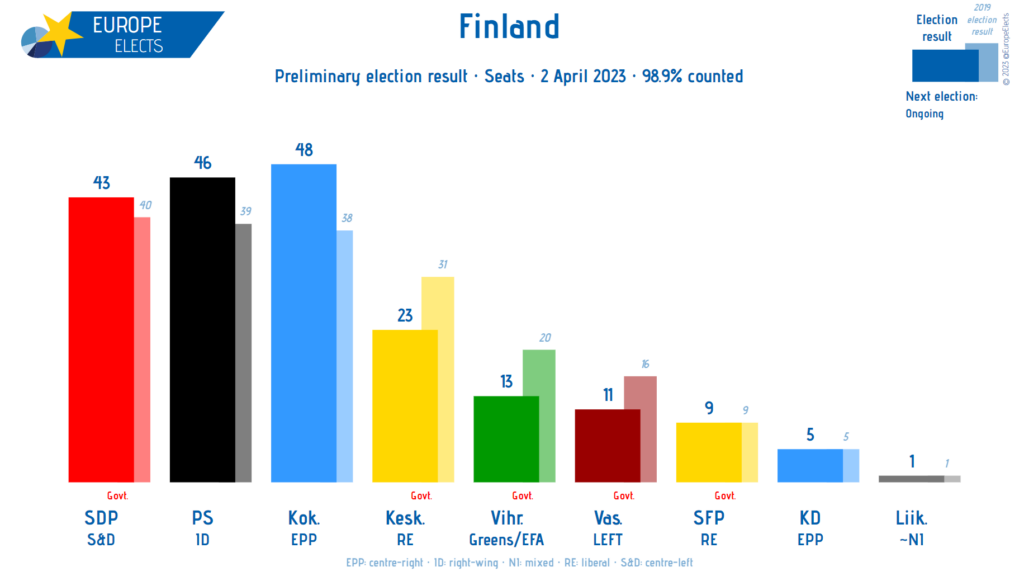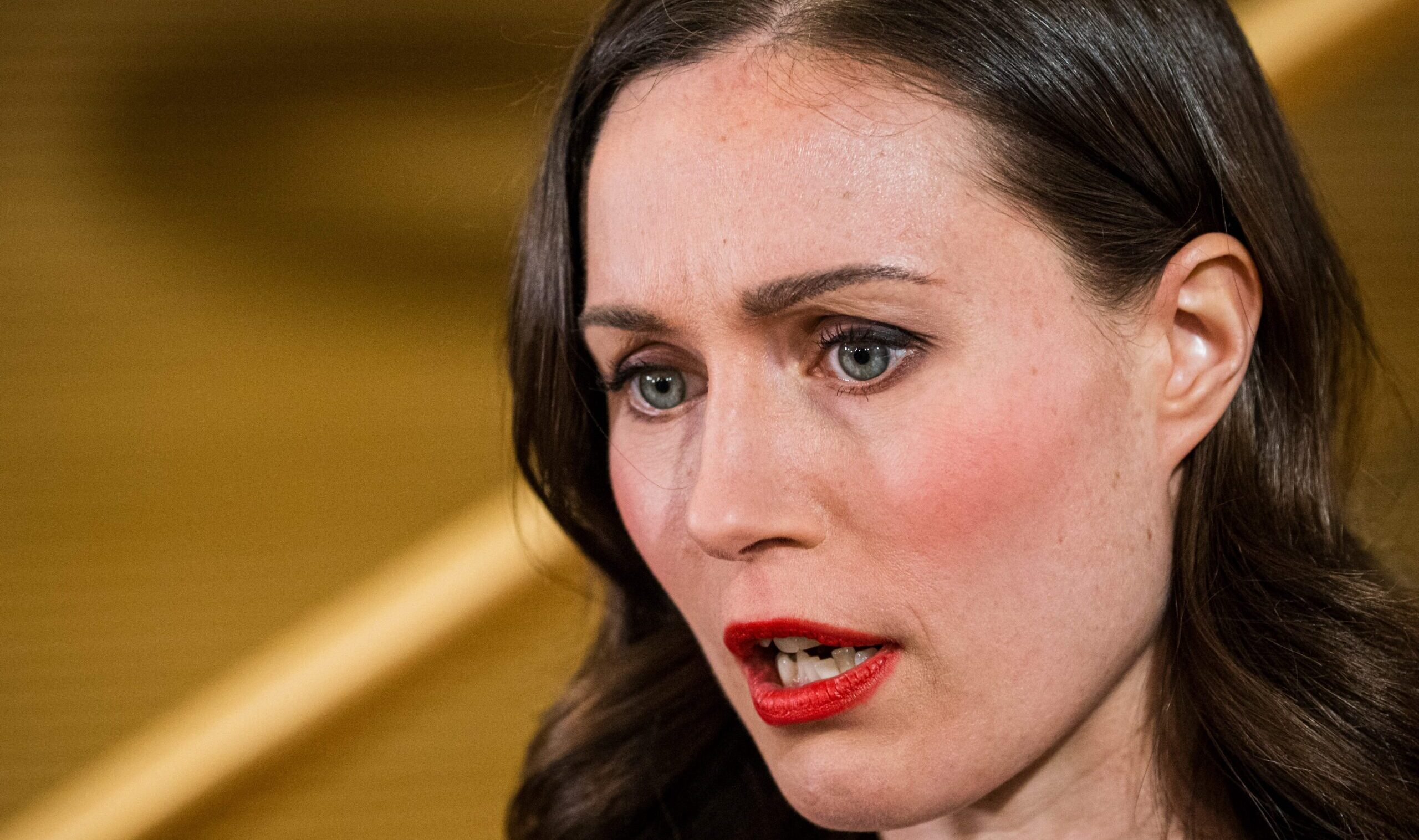The list of internationally famous Finnish politicians is not a long one — arguably it consists only of the current Prime Minister, Sanna Marin. In part, that’s because she breaks the famous rule that politics is showbiz for ugly people. More importantly, she was in office when Russia invaded Ukraine.
Finland, like Ukraine, has a long border with Russia and used to be part of the Russian Empire. Marin’s response to Vladimir Putin’s invasion was to reverse her nation’s postwar policy of strict neutrality and join Sweden in applying for NATO membership. Her place in the history books is assured — which is just as well, because last night she lost the general election.

Marin’s party, the Social Democrats, slipped from first to third place, and the premier conceded defeat late last night. However, the fact that a similar fate also befell her Swedish counterpart, Magdalena Anderson — another NATO-joining social democrat — should not be interpreted as an anti-NATO backlash.
For a start, Marin’s party increased its share of the vote yesterday. Unfortunately for her, the conservative National Coalition Party did even better, moving into first place. If Putin had hoped to intimidate his neighbours into passivity, then this victory for the conservatives — the most pro-NATO party — is yet another failure of Russian foreign policy.
Can Putin take any comfort from the advance of the populist Finns Party, which achieved its best-ever result to take second place? After all, Moscow has often looked to Europe’s hard-Right parties for sympathy. Only last week, more than 20 MPs from Austria’s Freedom Party staged a walk-out when Volodymyr Zelenskyy addressed the national parliament.
However, there’s a big difference between the Nordic populists and their counterparts in the Danube region. To put it mildly, Finnish nationalism is not known for its pro-Russian tendencies. This country of just over five million people did not free itself from the Tsarist yoke in 1917 nor humble Stalin’s Red Army in the Winter War by rolling over in the face of Russian aggression.
What we can say about last night’s result is that it is further confirmation that European populism is on the march again. As in other countries, there was a decline in populist support during the pandemic — but this has proved to be a temporary phenomenon. A strong second place for the Finns Party makes it a possible coalition partner for the Finnish conservatives (though the latter may prefer to forge a grand coalition with the Social Democrats).
Recent polls show a similar story elsewhere. The aforementioned Austrian Freedom Party now has a clear lead in recent polls. In France, the far-Right National Rally is gaining ground. In the Netherlands, the Farmer-Citizen Movement is now so popular that it has more than double the support of the next nearest party. In neighbouring Flanders (the Flemish speaking half of Belgium), the leading party is the separatist Vlaams Belang. Meanwhile, in Italy Giorgia Meloni’s party remains the dominant force.
There is no consistency in these various parties’ foreign policies — so the populist revival cannot be interpreted as a general backlash against Western support for Ukraine. Rather, to explain why so many voters are so angry with the political establishment, we must look to the home front.











Join the discussion
Join like minded readers that support our journalism by becoming a paid subscriber
To join the discussion in the comments, become a paid subscriber.
Join like minded readers that support our journalism, read unlimited articles and enjoy other subscriber-only benefits.
Subscribe